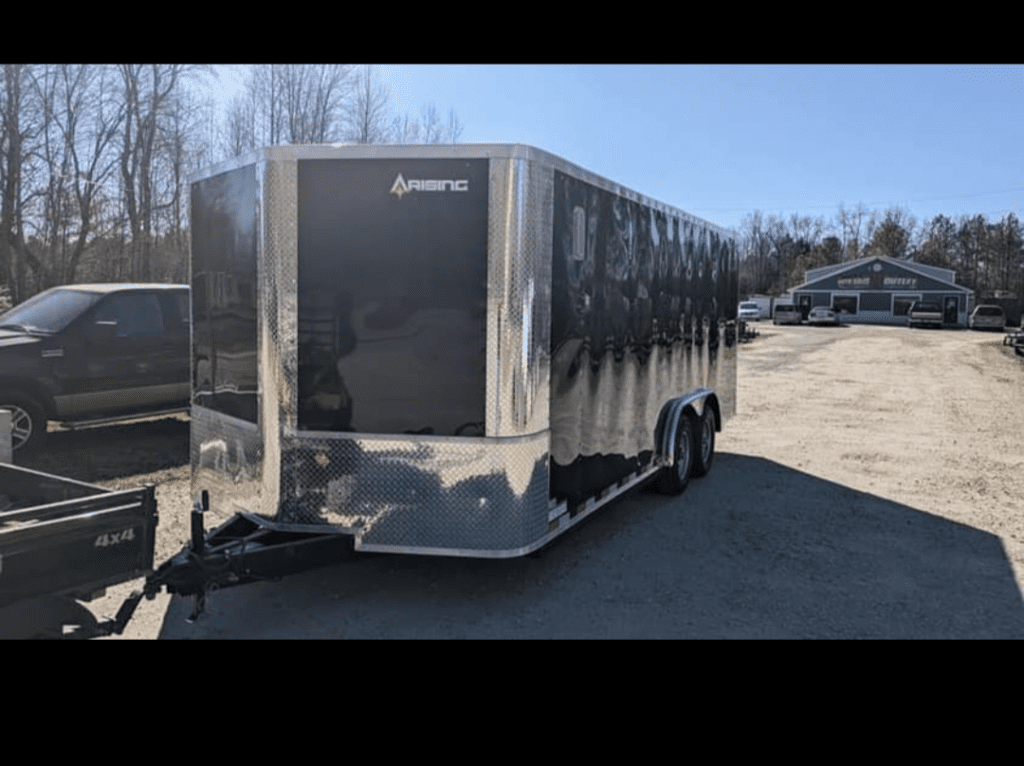A Comprehensive Guide to Axles for Trailers
As a key component of any trailer, axles are crucial for the safe and efficient transportation of goods and equipment. Whether hauling cargo for work or embarking on a weekend adventure, understanding the different types of axles available for trailers is essential for selecting the right option to meet your needs. In this comprehensive guide, we’ll explore everything you need to know about axles for trailers, focusing on axles for trailers in Virginia.
What is an Axle?
An axle is a central shaft or rod that supports the wheels of a trailer and facilitates movement by transferring the weight of the trailer and its cargo to the wheels. Axles are typically mounted underneath the trailer frame. They can vary in design and configuration depending on the type and size of the trailer.

Types of Axles
- Single Axle: A single axle consists of one shaft that supports two wheels on either side of the trailer. Single-axle trailers are commonly used for smaller loads and lighter-duty applications, such as utility or small camper trailers. They offer simplicity and maneuverability but may have weight capacity and stability limitations.
- Tandem Axle: Tandem axles consist of two shafts mounted parallel to each other, with each axle supporting two wheels. Tandem axle trailers are optimal for transporting heavier loads, offering enhanced stability and weight distribution in contrast to single axle trailers. They are commonly used for larger cargo, enclosed, and travel trailers.
- Triple Axle: Triple axles feature three shafts mounted parallel to each other, each supporting two wheels. Triple axle trailers are designed for heavy-duty applications. They can accommodate even larger loads with improved stability and weight distribution. They are commonly used for commercial trailers, car haulers, and livestock trailers.
Axle Configurations
- Spring Axles: Spring axles use leaf springs or coil springs to provide suspension and absorb shocks and vibrations while on the road. They are a cost-effective and reliable option for many trailer applications. They are commonly used in both single and tandem axle configurations.
- Torsion Axles: Torsion axles use rubber cords or bars to provide suspension and absorb shocks and vibrations. They offer a smoother ride and better handling than spring axles but may come at a higher cost. Torsion axles are commonly used in tandem and triple axle configurations for larger trailers and RVs.
Considerations When Choosing Axles for Trailers in Virginia
- Weight Capacity: Consider the axles’ weight capacity relative to the trailer’s intended load. Ensure the axles can safely support the weight of the trailer and its cargo without exceeding their rated capacity.
- Terrain and Road Conditions: Consider Virginia’s terrain and road conditions where the trailer will be used. Tandem or triple axles may be preferable for navigating uneven or rough terrain. In contrast, single axles may suffice for flat and well-maintained roads.
- Licensing and Regulations: Familiarize yourself with any licensing requirements or regulations for trailers in Virginia, including weight limits and axle configurations. Ensure your trailer complies with all applicable laws and regulations to avoid fines or penalties.
- Budget and Cost: Consider your budget and the cost of different axle options when deciding. While torsion axles may offer superior performance, they also come at a higher cost than spring axles. Choose one that best suits your budget.
Maintenance and Care
Proper maintenance and care are vital for ensuring the longevity and performance of trailer axles. Regularly inspect axles for signs of wear and tear, including rust, corrosion, and damage to suspension components. Lubricate bearings and bushings as necessary and promptly replace any worn or damaged components to mitigate additional harm and ensure safe operation on Virginia’s roads.
Conclusion
Selecting the right axles for trailers in Virginia is important for ensuring safe and efficient transportation of goods and equipment. Whether hauling cargo for work or embarking on a recreational adventure, understanding the different types of axles available and their respective benefits and considerations is key to making an informed decision. By choosing the right axles for your trailer and maintaining them properly, you can enjoy smooth and trouble-free travels on the roads of Virginia for years to come.